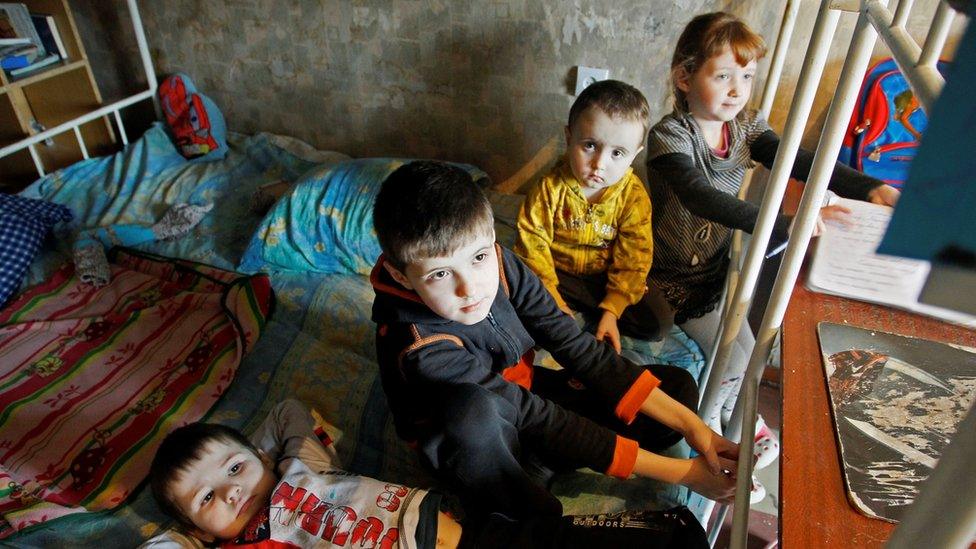Blockades leave east Ukraine more isolated than ever
- Published
Blockade in Ukraine conflict zone takes heavy toll
A lone figure, Svetlana hobbles with heroic stoicism through no-man's-land.
Her two brightly-patterned, tattered shopping bags weigh heavily in her hands.
The Russian-backed "republic" where the 78-year-old lives is at war with Ukraine and is not marked on most world maps.
She is travelling west into Ukraine proper to visit her sick husband, who no longer lives with her on the separatist side.
She is proud, almost defiant, and will not accept our offer of a lift.
Nearby, Anatoliy stands waiting for a bus going the other way, back to the separatist side.
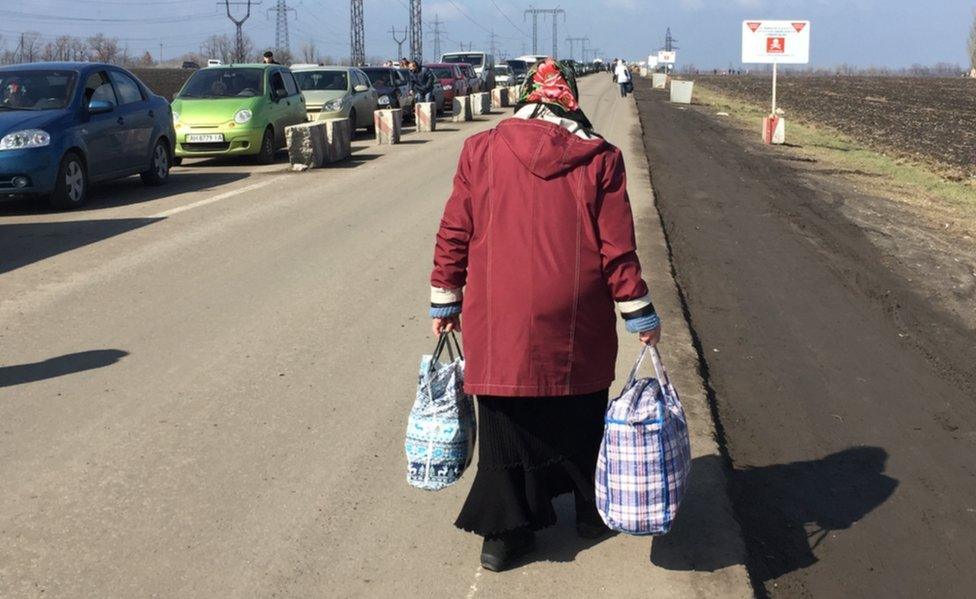
Svetlana trudges from separatist territory to visit her sick husband
He has just collected his Ukrainian pension.
He lives in a place where Russian and separatist flags fly above government buildings and Russian roubles buy you mainly Russian goods.
The Kremlin recently said that separatist IDs could be used to travel east over the border into Russia.
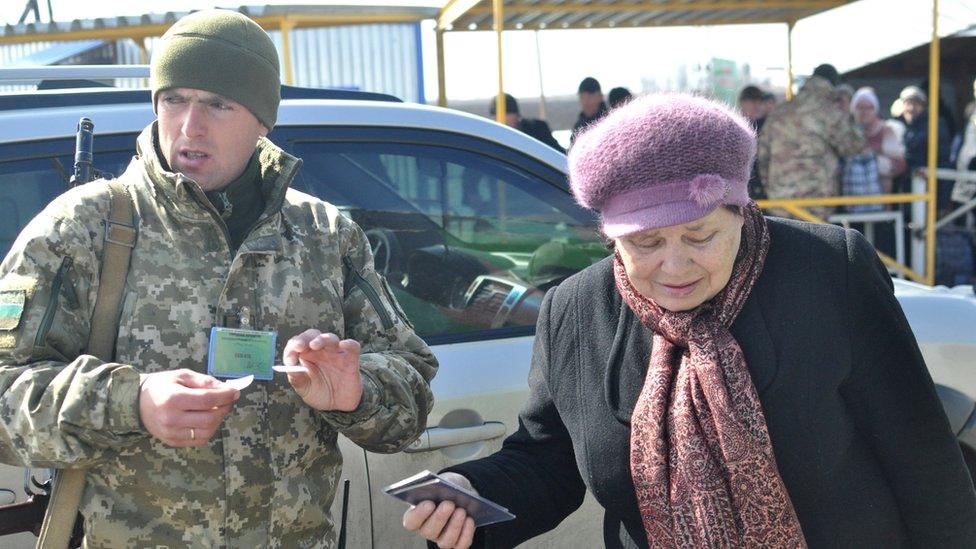
A Ukrainian soldier checks a woman's passport as she waits to enter the separatist-controlled east
Despite close financial and military ties with the two so-called separatist republics, Moscow has still not officially recognised them or taken the land as its own.
More from Tom Burridge in Ukraine
And despite a wealth of evidence to the contrary, the Kremlin still denies it has armed, and fought alongside, the separatist armies.
The conflict is entering its fourth year and Anatoliy says life under the separatists "couldn't be worse".

Others complain there are no jobs for the young, that basic goods are expensive and that shooting and shelling never stops.
Anatoliy does not like "what Putin has done" to eastern Ukraine.
"Ukraine used to be whole and undivided. Why the hell did he come here?" he asks.
But one woman does not like what she hears and interrupts. She blames Ukraine for "creating this concentration camp".
The separatist-held east is more cut off from the rest of Ukraine than ever before.
And the crossing point now at least feels like a border.
How tit-for-tat blockades began
With the right paperwork, people can move back and forth past a network of military checkpoints on either side.
Now, though, the Ukrainian government has blocked the movement of all commercial goods across the frontline.
'I'm so sick of this war' - Ukraine woman tells of loss
It did so because the separatists seized Ukrainian-owned businesses in the territory they control.
The separatists were themselves responding to an initial blockade of rail lines by former Ukrainian soldiers, who said trade with Ukraine across the frontline was funding the separatist armies.
The war had already greatly damaged eastern Ukraine's coal and steel plants.
Now this valuable industrial network has been sliced in two, causing unquantifiable economic pain on either side.
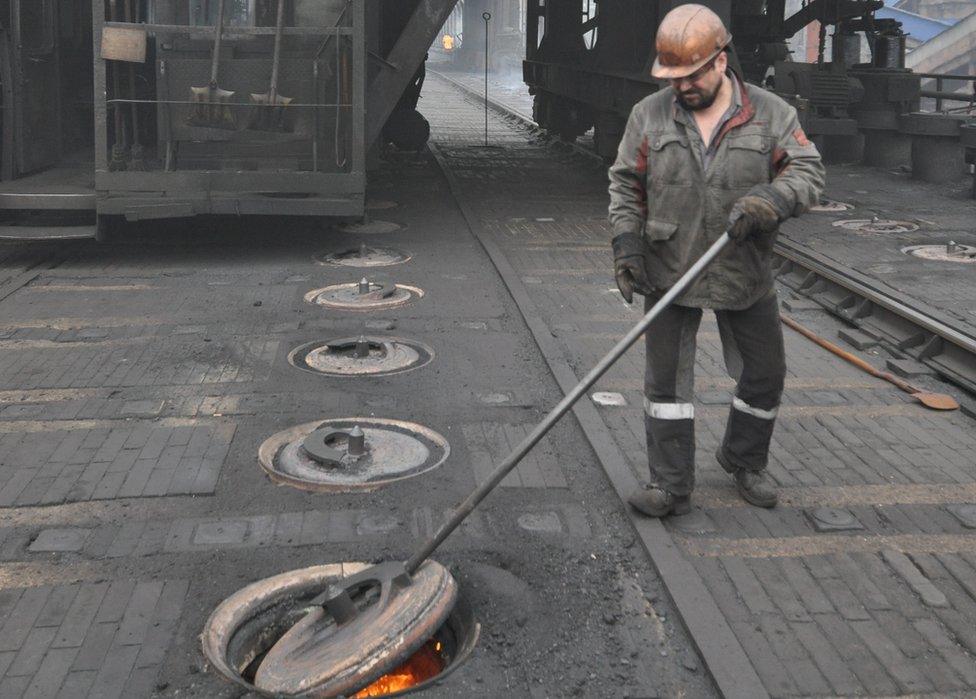
The Avdiikva coke plant is among the biggest in Europe and helps fuel Ukraine's steel industry
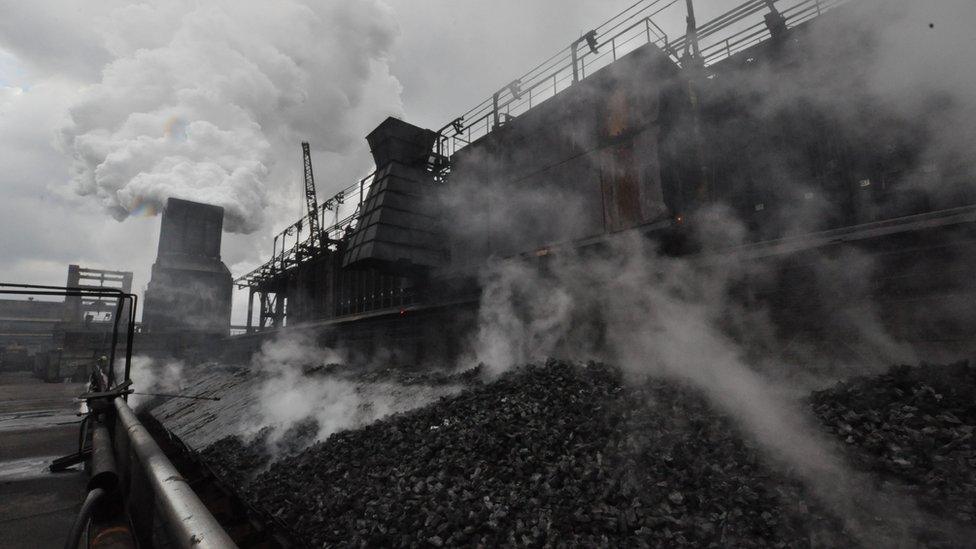
Despite the risks so close to the frontline, keeping the plant running is vital for Ukraine
For Ukraine analyst Michael Bociurkiw it is a "set of very bad developments" that makes the chances of eastern Ukraine being incorporated back into the rest of the country less likely.
"It's another nail in the coffin for Minsk."
He means the peace agreement, signed by Russia and Ukraine in the Belarusian capital Minsk in early 2015.
Mr Bociurkiw worked extensively in eastern Ukraine for the Organisation for Security and Co-operation in Europe (OSCE).
The OSCE is responsible for monitoring the conflict, in order to pressure both sides into obeying the still elusive ceasefire.
For him, the war could be resolved in one phone call between Moscow and Washington. "But unless there is political will, I don't think we are going to see peace any time soon."
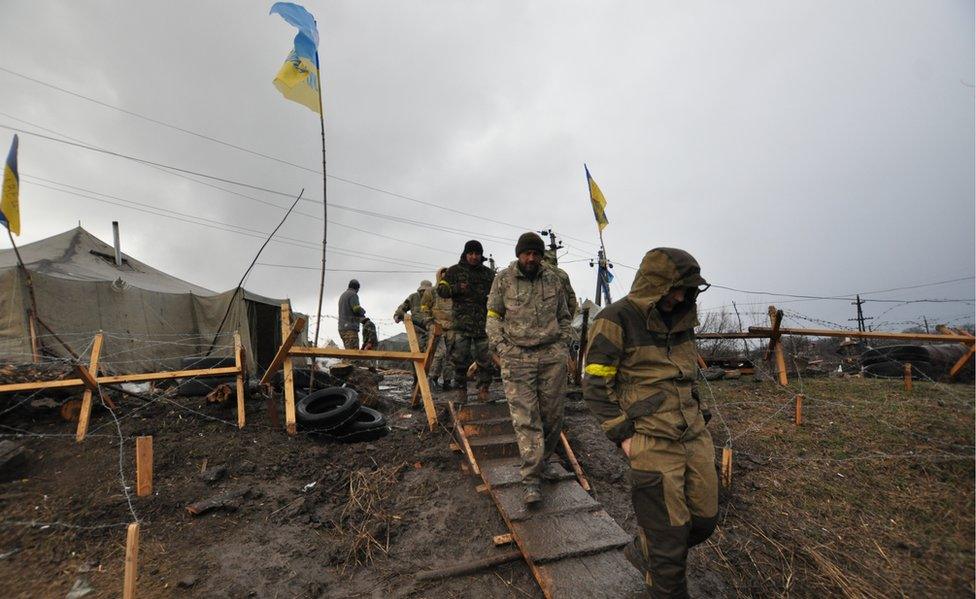
Ukrainian ex-soldiers began a blockade to stop goods going to and from the separatists
Repeated attempts to implement a lasting ceasefire have failed. And that means more loss of life.
"What are we losing our parents for?" asks Nadia, 22.
Her mother, Katya, was killed in the town of Avdiivka by a mortar round or shell as she walked home.
"Why are people dying?" she says as tears run slowly down her cheeks.
"Make them stop all of this. Make them sign treaties in Minsk or whatever," she says, appealing to those with power on either side of the conflict.
"Do anything so that this is over soon."
- Published2 March 2017
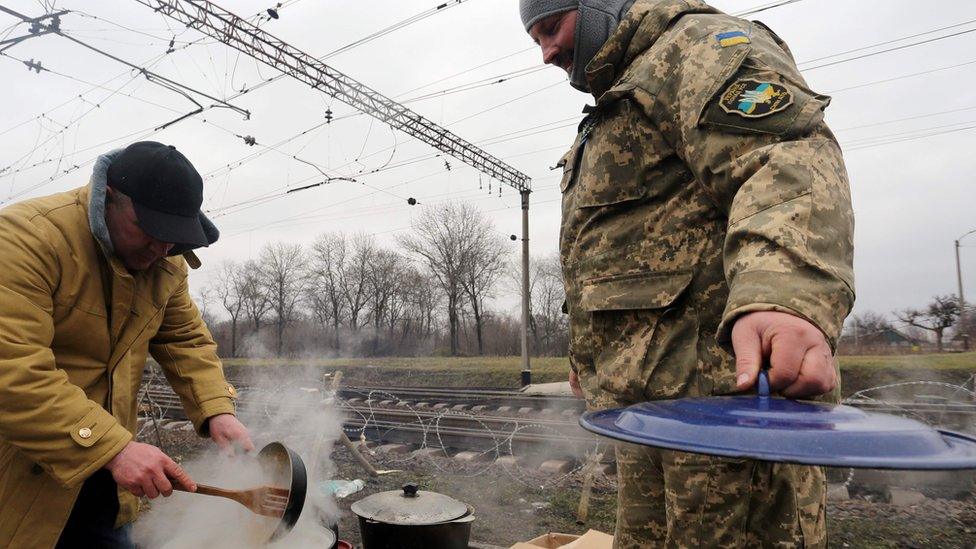
- Published19 February 2017
